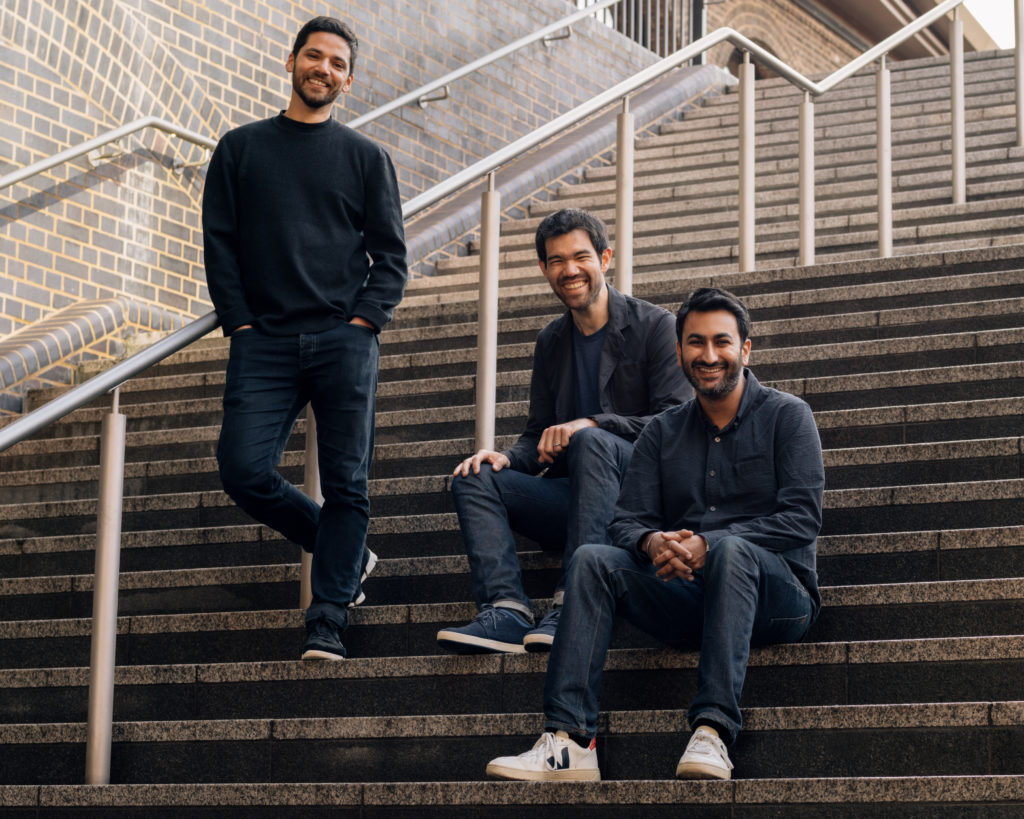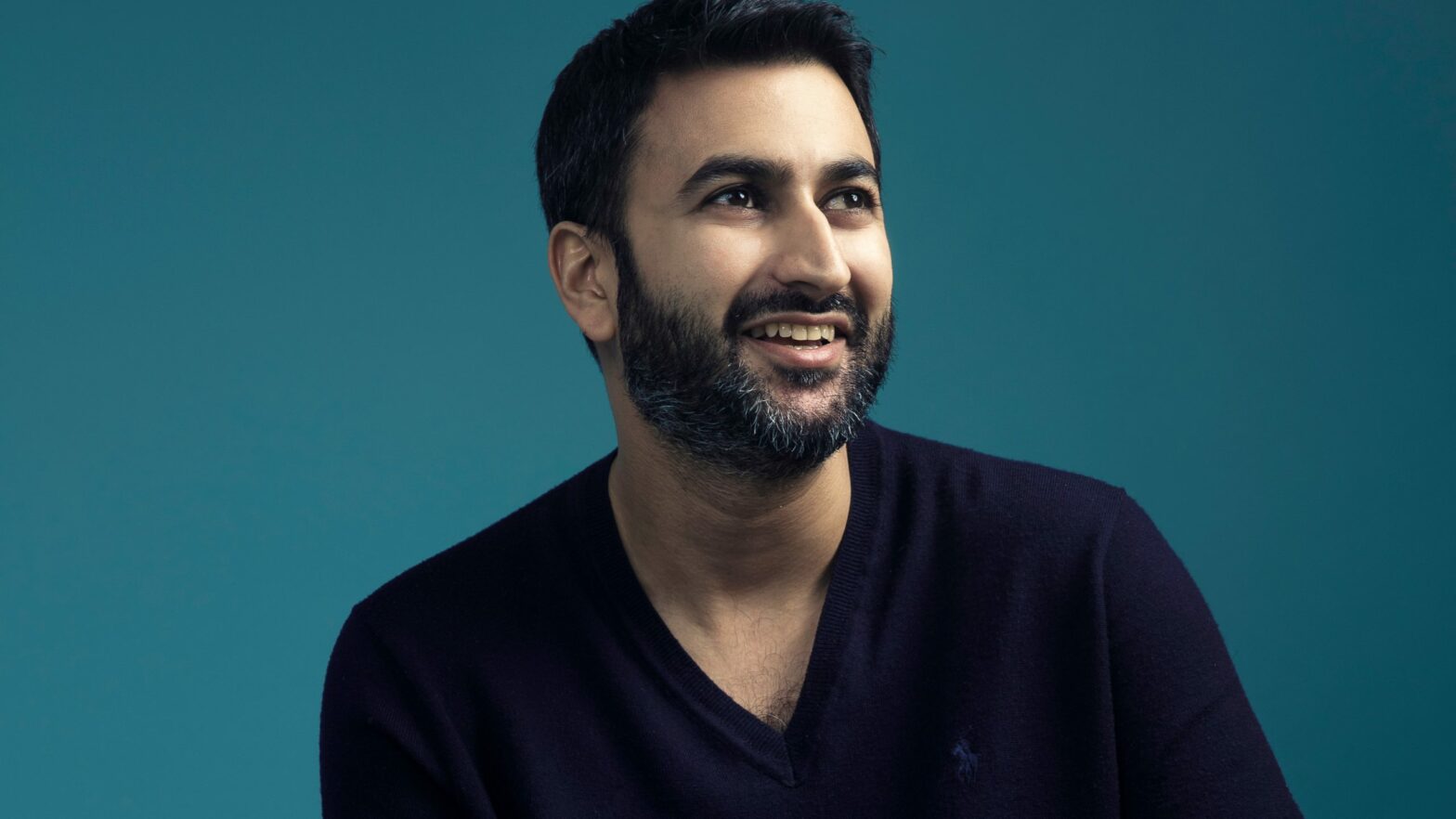Trouva is an online marketplace that helps customers find unique products from the best independent stores in Europe.
It launched four years ago, initially in London, but now offers homeware and fashion from almost 1,000 independent retailers in Barcelona, Berlin, Copenhagen and Paris. Today, 40 per cent of Trouva’s retailer network is made up of bricks-and-mortar shops outside the UK, across 12 European countries. Its website offers over 200,000 products and the company has become one of the fastest-growing tech businesses in Europe.
A German site went live at the end of 2019 and Trouva is planning to launch a French version later this year.
Mandeep Singh, co-founder of Trouva, oversees a team of 80 based in London and Lisbon.
>See also: How I’ve grown my business – Lex Deak, co-founder KinderList
Where did the idea for your business come from?
I could see how technology was changing the way people were shopping in the bricks and mortar world, but a lot of the chains were just selling the same old things you could buy on Amazon and not doing a great job. They weren’t using the technology to be what we call multichannel.
What we realised about independents was that they had beautiful products you couldn’t get anywhere else in the world. Could we bring together all these independents in a single platform and community? Crucially, we wanted to build a marketplace that would allow customers to shop easily.

What experience did you have in your sector?
My co-founder Alex Loizou was taking part in the Entrepreneur First programme, a government scheme for people from computer science backgrounds to become entrepreneurs, while I was working at BC Partners, a private equity investor, working with retail chains such as Foxtons, Fitness First and Phones4U. Before that I had been a strategy consultant, advising retailers such as Arcadia Group (Top Shop) and Asda.
Do you consider your business to be a disruptor – what’s its USP?
There’s nobody who’s done this for independent bricks-and-mortar stores, the long tail we work with. Because this is a really hard technology problem to solve. How do you do online fulfilment but from within stores? We have our own inventory management software that sits in each of these independent stores. You’re seeing real-time inventory software sitting on every one of these store’s websites. We think of ourselves as disrupting the traditional marketplaces, the likes of eBay and Amazon.
The other thing is that when you buy from eBay, mostly they don’t touch the fulfilment at all. Typically, you’re waiting for the seller to post it themselves. We have built our own software and did deals with carriers, so when someone buys on Trouva they collect from the store and deliver it to you as a customer. That means that we started doing one-hour same-day delivery way before Amazon. What we’ve taken is a fundamentally different strategy from Amazon, starting with logistics, and we’re very picky about who we take on the platform.
>See also: How I’ve grown my business: Rebecca Fitzgerald, founder of StrawberrySocial
What funding did you have to start the company with?
Initially, we started by using our savings and then I met Robin Klein, who was a partner at Index Ventures, and was also introduced to VC Playfair Capital. Robin was on the board of Farfetch, the luxury shopping platform, and he also launched e-commerce for Arcadia Group. We were lucky enough to also find angel investors who’d been involved with Farfetch and Just Eat to back us in those early days.
When you started the business, what were the challenges you faced?
It’s always harder than you think it’s going to be. One thing that surprised our investors is that worldwide over 90 per cent of transactions still take place offline. A lot of independent shopkeepers and business owners love interacting with people instore and they love meeting new people. One of the ways we overcame that was for Trouva to become a community, hosting events, giving them advice on taking advantage of social media, doing a lot of things to add value to them.
But there was also a lot of pounding the streets, trying to get shopkeepers to sign up while standing outside in the rain. A new marketplace is always a chicken-and-egg scenario. Should you concentrate on building the site or getting clients in?
Have you turned to external finance to grow? If so, what type – debt or equity?
Back in 2017 we raised $10m in Series A funding through BGF Ventures.
Last November, we raised a further £17m funding round led by Octopus Ventures, C4 Ventures and Downing Ventures, with BGF and LocalGlobe also in the round.
What would you say to other founders who need finance but worry about losing control of their company?
The path we’re on isn’t right for everyone. Raising seed money was always the right path for us, especially in the early days, as we’re a technology company and we needed to build the platform. The way I have always looked at it is, do we believe we’re building a better business, even if we’re giving up some equity? Ultimately, we care about what’s going to grow our company. Our equity may be smaller but it’s still a bigger business, so we’re better off.
How do you measure success for yourself, either for yourself, your staff or for your customers?
We want to become the global platform for buying the most beautiful products from our customers, so our key metric is growth – not only our revenue growth, but how we can help grow revenue for our independent shopkeepers? We’ve had calls from shop owners saying that through online sales, we’ve paid their rent for this month through the platform. And for our customers, we want to be a destination that shoppers come back to again and again.
What business (or personal) tip would give to other entrepreneurs hoping to grow their businesses?
Hire people who are better than you. Our job as entrepreneurs is not being afraid to hire people who are better than we are at functional parts of the business. Don’t be afraid you to delegate yourself out from operational roles.
Who has most influenced your working life?
I’ve got a lot of entrepreneurs who are friends and peers, fellow entrepreneurs who’ve been there before. In the early days, that advice was absolutely invaluable. I try and return the favour and mentor younger entrepreneurs myself.
How to you relax outside of work?
I like playing tennis, which is how I met my wife. It allows me to switch off, although, to be honest, I don’t have that much free time.
Mandeep Singh is co-founder of Trouva and a member of the Growth Business Venturers Club. To find out more about becoming a venturer see here.
Mandeep is also a judge at this year’s Retail Week Awards to be held in London on 12 March.
Further reading
How I’ve grown my business: Damon Bonser, CEO of British Design Fund






